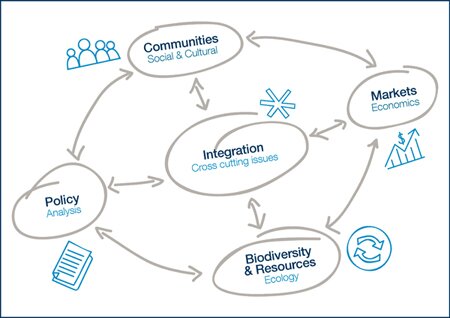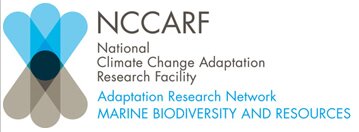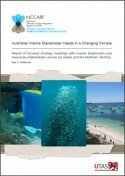|
Page 2 of 9 pages < 1 2 3 4 > Last › Glossary of Terms
Climate change in IPCC usage refers to any change in climate over time, whether due to natural variability or as a result of human activity. The usage differs from that in the Framework Convention on Climate Change, where climate change refers to a change of climate that is attributed directly or indirectly to human activity that alters the composition of the global atmosphere and that is in addition to natural climate variability observed over comparable time periods.
Adaptation is the adjustment in natural or human systems in response to actual or expected climatic stimuli or their effects, which moderates harm or exploits beneficial opportunities.
Resilience is defined as the ability of a social or ecological system to absorb disturbances while retaining the same basic structure and ways of functioning, the capacity for self-organisation, and the capacity to adapt naturally to stress and change.
Vulnerability is the degree to which a system is susceptible to, and unable to cope with, adverse effects of climate change, including climate variability and extremes. Vulnerability is a function of the character, magnitude and rate of climate change and the variation to which a system is exposed, its sensitivity and its adaptive capacity.
An Integrative Network
The Marine Adaptation Network consists of five inter-connecting themes:
• Integration
• Biodiversity & Resources
• Communities
• Markets
• Policy
The Marine Adaptation Network will improve understanding of, and enhance, adaptive capacity of all sectors within the marine space using an integrative model (Figure 1) of collaboration, engagement and cooperation that cross-cuts between biodiversity & resources, communities, markets and policy (including management and governance).

Figure 1: Integrative model of the Marine Adaptation Network
Key scientific developments since the IPCC fourth Assessment report

June 2009
The Intergovernmental Panel on Climate Change (IPCC) released its Fourth Assessment Report (AR4) in 2007. Since then, a number of new scientific results have been published that expand our understanding of climate science. Some of the key findings since the last IPCC assessment are provided in this brief.
Read More>
Page 2 of 9 pages < 1 2 3 4 > Last ›
|






 View the video (2.07)
View the video (2.07)

